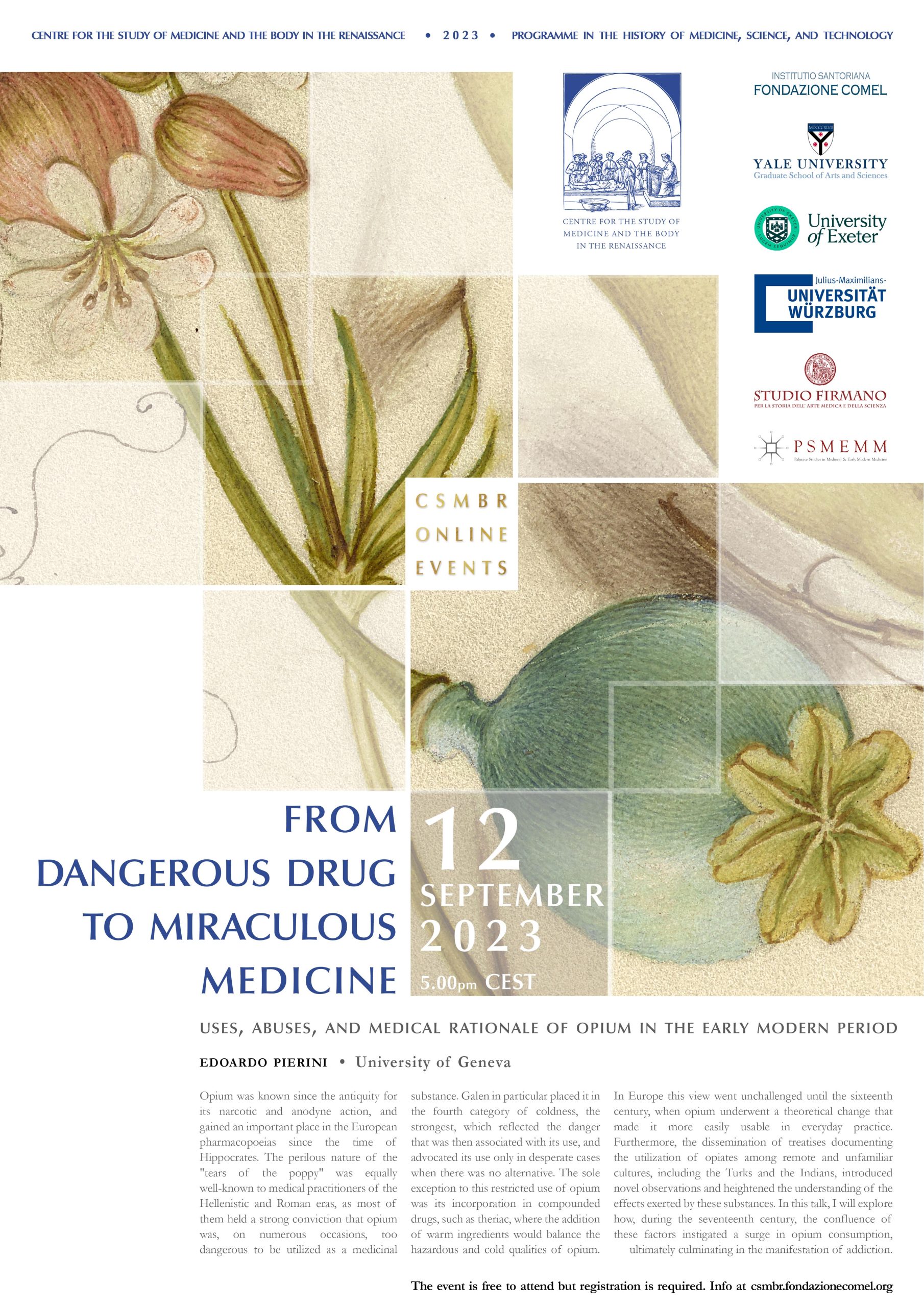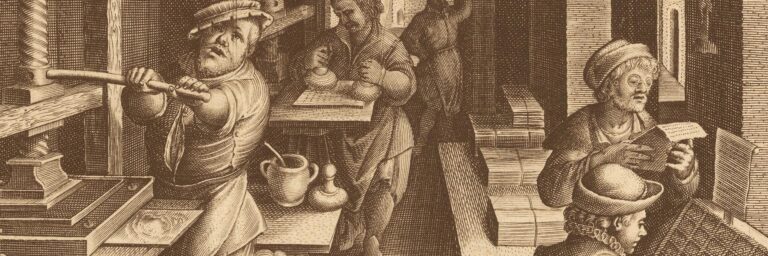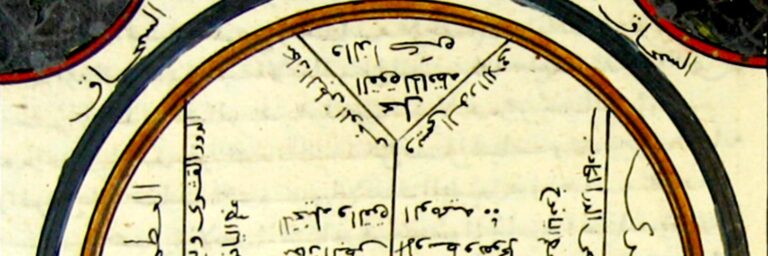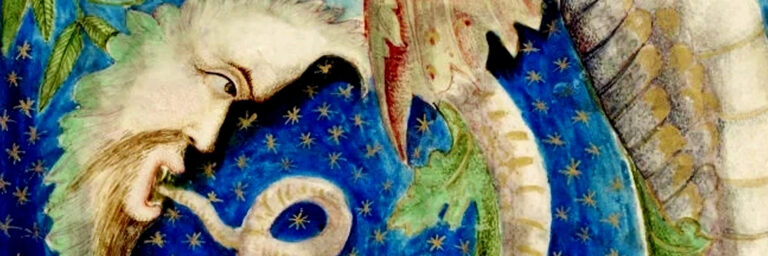From Dangerous Drug to Miraculous Medicine
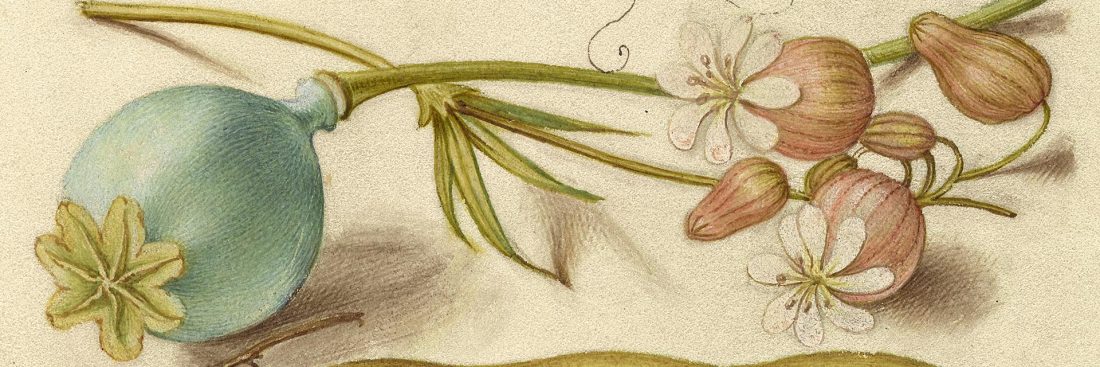
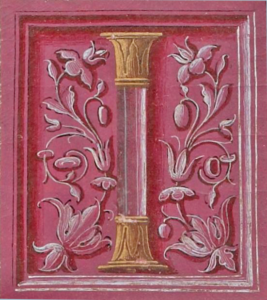
From Dangerous Drug to Miraculous Medicine
Uses, Abuses and Medical Rationale of Opium in the Early Modern Period
Edoardo Pierini
12 September 2023 – 5 PM (CEST)
Opium was known since the antiquity for its narcotic and anodyne action, and gained an important place in the European pharmacopoeias since the time of Hippocrates.
The perilous nature of the “tears of the poppy” was equally well-known to medical practitioners of the Hellenistic and Roman eras, as most of them held a strong conviction that opium was, on numerous occasions, too dangerous to be utilized as a medicinal substance. Galen in particular placed it in the fourth category of coldness, the strongest, which reflected the danger that was then associated with its use, and advocated its use only in desperate cases when there was no alternative.
The sole exception to this restricted use of opium was its incorporation in compounded drugs, such as theriac, where the addition of warm ingredients would balance the cold qualities of opium. In Europe this view went unchallenged until the sixteenth century, when the opium poppy emerged as a subject of fervent debate in medical botany.
As the Galenic system of medicine came under general scrutiny, new theories emerged across Europe regarding the properties of opium, primarily based on iatrochemical or occult principles. Opium underwent a theoretical change that made it more easily usable in everyday practice not only through expensive compounded medicines such as theriac and mithridate, but also through a chemical preparation that would have deprived it of its dangerousness.
Furthermore, the dissemination of scientific literature and treatises documenting the utilization of opiates among remote and unfamiliar cultures, including the Turks and the Indians, introduced novel observations and heightened the medical community’s understanding of the effects exerted by these substances.
In this talk I will explore how, during the seventeenth century, the confluence of these factors instigated a surge in opium consumption, ultimately culminating in the manifestation of addiction.
About the Speaker ...
Edoardo Pierini is a PhD student in history of medicine at the Institut Éthique Histoire Humanités – University of Geneva
He studied history at the University of Roma Tre (BA 2016, MA 2017), where he worked on Early Modern European science under the supervision of Antonio Clericuzio. In 2018 he moved to Paris where he obtained a Master in Comparative History of Civilizations at the University of Paris VII – Diderot. He is also a graduated in Physiotherapy in Rome at the University ‘La Sapienza’, and has worked in the rehabilitation of the Parkinson’s Disease.
His PhD thesis, titled Opiates: Theories, Experimentation and Social Impact in England and France (1600-1700), offers a close examination of the theories, the medical practice, and the experiences elaborated by physicians in dealing with these dangerous substances.



